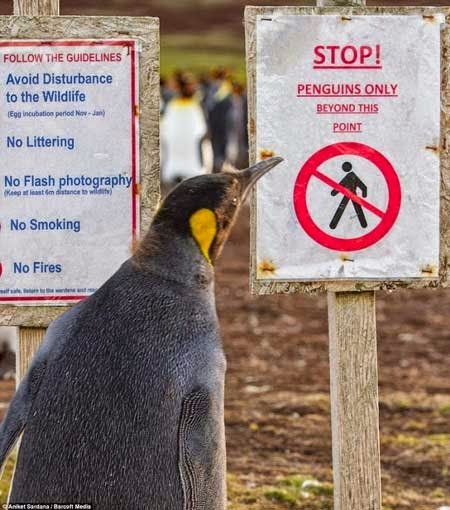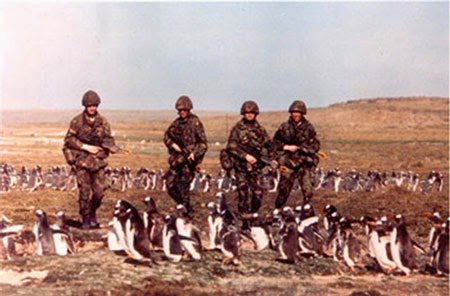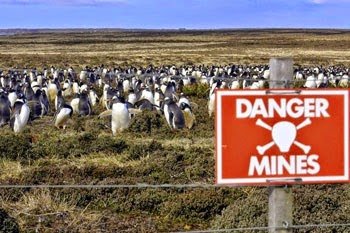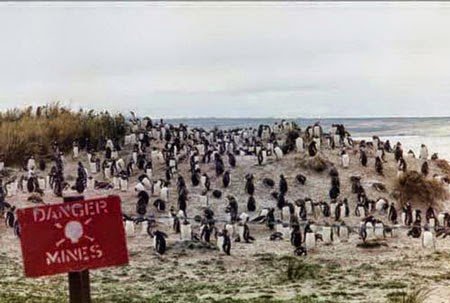Minefields Become Habitat of Millions of Penguins

Who would have thought tens of thousands of highly dangerous explosive mines were the safest home for the survival of millions of penguins in the Falkland Islands who were victims of human slaughter to become fat fuel for whaling. Falkland Island, which is located in the Atlantic Ocean 300 m from the Patogonian coast, South America, is a matter of territorial struggle to cause war between the British Army and the Argentine Military.

The fighting conflict that occurred in 1982 was known as the Malvinas War and after the war was over, leaving hundreds of minefields that became the habitat of millions of penguins safest from illegal hunting. This dispute began when the British recognized the island as their territory outside their country but Argentina also claimed that the island of Fakland had already become their power.

As a result, Argentine forces invaded the islands and resulted in the outbreak of the Malvinas War. For ten weeks, around 650 Argentine military personnel, more than 250 British military personnel, and three Falkland Islands residents were killed. In the end, the Falkland Islands were returned to the United Kingdom.
The 18th century was a time when whaling was incessant. The whale oil industry was booming at the time, and the Falklands were the ideal place to catch whales and whale oil extraction. To produce whale oil, a layer of fat (blubber) is separated from their body, then stored in a giant barrel of water boiled with fire.
But the Falklands are completely treeless. The only vegetation here is a dwarf shrub that is completely useless as fuel. Because of the absence of wood to keep the fire burning, whalers began to use other abundant resources that could be used as substitutes for wood for fuel, namely Penguin. Penguins have enough fat under their skin, and whale hunters know that fat is flammable so it can be used as a substitute for wood.
These animals also cannot fly and are tame in nature, making them easy to catch. So every time the flame decreases, they just need to grab some penguins and throw it into the fire. This disaster began, millions of penguins were burned down for the whale oil business. Initially their number was around 10 million to be reduced by 95%.
Then the Argentine invasion ensued. Argentina invaded the Falkland Islands and controlled them, and to prevent the British military from recapturing the islands, the Argentine military planted more than 20,000 landmines along the coast and grasslands near the capital. After the war ended, the British government made an effort to clear minefields, but it was a dangerous and tiring effort.

Finally, they decided to fence off minefields and put up warning signs to keep people away from the area. Because there are no more humans approaching minefields, then with the passage of time these areas become unintentional asylum for penguins. These animals are quite light, so they can walk and jump in minefields without causing mines to explode, so they are free to find a mate, prepare nests and mate.
Over the past thirty years, their numbers have increased. Today, the Falkland Islands are home to 1 million penguins. So minefields that are dangerous to humans, are safe places for penguins to live and breed.